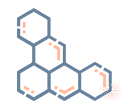Vaidyanathan, K., Narayanan, M. P., & Vasudevan, D. M. (2011). Organic acidurias: an updated review. Indian journal of clinical biochemistry: IJCB, 26(4), 319–325. https://doi.org/10.1007/s12291-011-0134-2
Van Gosen L. (2008). Organic acidemias: a methylmalonic and propionic focus. Journal of pediatric nursing, 23(3), 225–233. https://doi.org/10.1016/j.pedn.2008.02.004
Pena, L., Franks, J., Chapman, K. A., Gropman, A., Ah Mew, N.,Chakrapani, A., Island, E., MacLeod, E., Matern, D., Smith, B., Stagni, K., Sutton, V. R., Ueda, K., Urv, T., Venditti, C., Enns, G. M., & Summar, M. L. (2012). Natural history of propionic acidemia. Molecular genetics and metabolism, 105(1), 5–9. https://doi.org/10.1016/j.ymgme.2011.09.022
Shchelochkov OA, Carrillo N, Venditti C. Propionic Acidemia. 2012 May 17 [Updated 2016 Oct 6]. In: Adam MP, Ardinger HH, Pagon RA, et al., editors. GeneReviews® [Internet]. Seattle (WA): University of Washington, Seattle; 1993-2021. Available from: https://www.ncbi.nlm.nih.gov/books/NBK92946/
Fraser, J. L., & Venditti, C. P. (2016). Methylmalonic and propionic acidemias: clinical management update. Current opinion in pediatrics, 28(6), 682–693. https://doi.org/10.1097/MOP.0000000000000422





